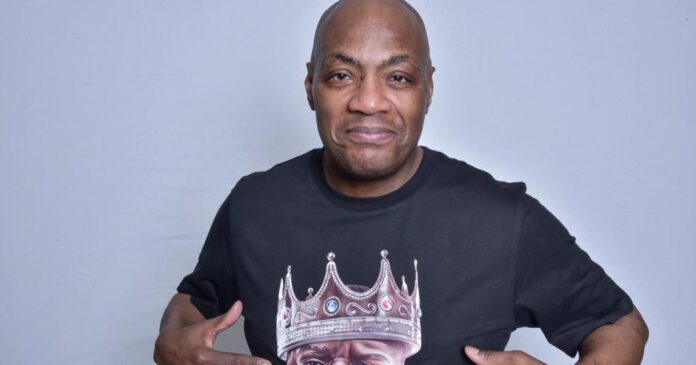Legendary hip-hop deejay and producer Mister Cee, whose real name was Calvin LeBrun, died on April 10. He was only 57 years old. He died of diabetes-related coronary artery kidney disease.
Affectionately known as “The Finisher,” Mister Cee was previously a disc jockey on Hot 97 and a fixture on the party scene in New York and New Jersey. Up until the time of his death, he was spinning at 94.7 The Block. The latter released a statement on social media reacting to LeBrun’s sudden passing in a joint post with another host at the station, Shelley Wade.
“Yesterday was such an emotionally traumatizing day. For hours, we were concerned because we couldn’t reach Mister Cee…and then we got confirmation that he had passed away,” the statement read. They posted a still image of the iconic Apollo Theater, a loving farewell tribute to LeBrun, acknowledging the gap in the culture he left behind.
According to the American Journal of Public Health, “Black men continue to have substantially lower life expectancy at birth than Black women and White women and men” and “There is a lag in increases in survival between the ages of 45 and 75 years for Blacks with the largest gap in survival for Black men.” In 2019, NPR reported that “Black men have the lowest life expectancy of any major demographic group in the U.S.”
LeBrun is not the only legendary producer or artist to leave the limelight tragically early. Biz Markie died at 57 as well after suffering a severe stroke. COVID-19 claimed the life of DJ Kay Slay at 55. The sun set on Phife Dawg’s life due to diabetes complications at just 45. Heart failure led to the death of Craig Mack at 46. Their absence reflects the truth that fame does not isolate Black men from devastatingly short life expectancies. Pioneers in hip-hop like Mister Cee, who worked closely with the late Notorious B.I.G. and Big Daddy Kane, arrived on the scene before the maturation of the genre’s financial potential, placing them in a different economic position than the moguls who succeeded them.
Miss Jones, another iconic radio personality, commented on the need for hip-hop to have a health fund to help provide access to care for those called to create and promote the art form during an interview with PIX 11. She implied that a duty of care is owed to hip-hop people who paved the way and that a fund should be established. The same argument has been made for legends in other industries, including professional sports. Rappers Method Man, Fat Joe, French Montana, Busta Rhymes, and Chuck D have called for greater transparency in healthcare pricing, calling on Congress to pass legislation preventing opaque business practices.
Like many creative careers, those who dedicate their life to hip-hop often have trouble accessing health insurance consistently. D.J.s are among them. Even those lucky enough to find consistent work that offers traditional health care plans frequently find that later in their careers, they are playing catch up. Leaving a large chunk of time that they are uninsured or underinsured creates a prickly legacy of barriers to treatment. This lets routine and preventable ailments go left untreated.





